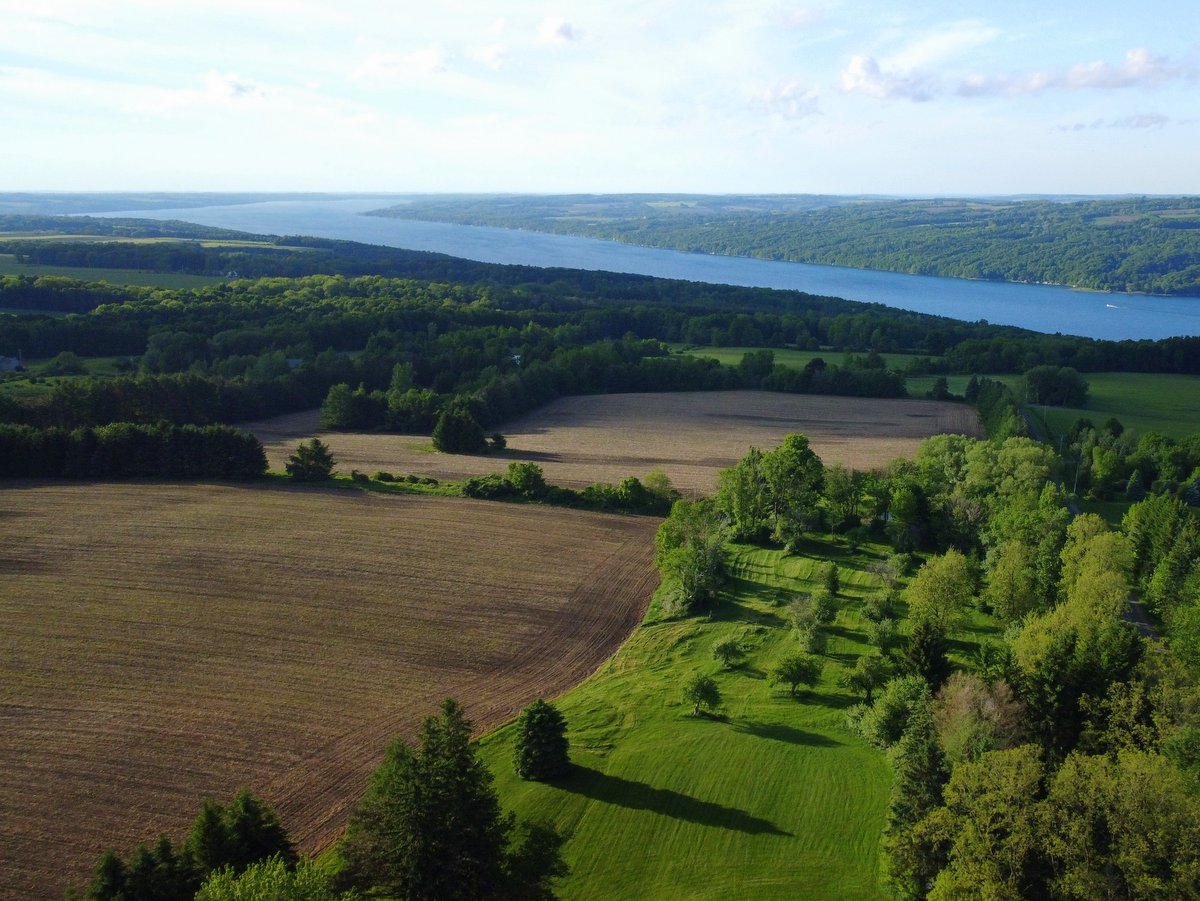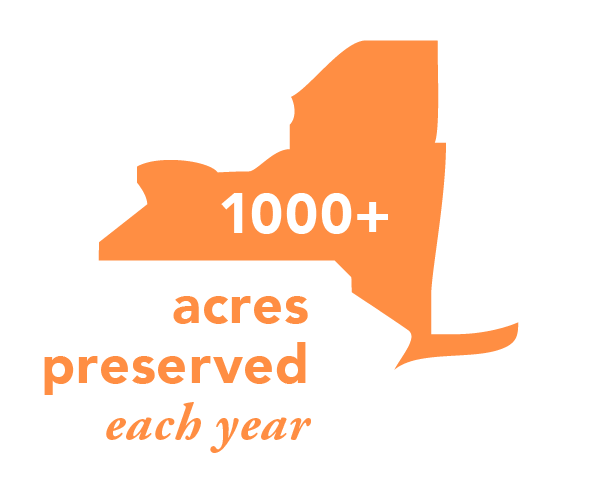The Finger Lakes Land Trust (FLLT) and the New York State Department of Environmental Conservation (DEC) permanently protected 234 acres at Casa Farms in the town of Niles, Cayuga County, with a conservation easement.
Funding for this project came from a larger FLLT grant for $1.6 million from DEC’s Water Quality Improvement Project Program (WQIP).
The property features nearly 6,000 feet of frontage on Hooker Brook, which drains directly into Skaneateles Lake, the unfiltered drinking water supply for more than 200,000 people in the city of Syracuse.

Photo: Ryan Walters
Through the establishment of this conservation easement, a buffer zone of natural vegetation along Hooker Brook was established to prevent potential contaminants from entering the drinking water supply while allowing for continued agricultural use on the rest of the property. Permanently protecting this property through a conservation easement is a cost-effective way to protect Syracuse’s drinking water source.
Casa Farms contains a mix of habitats including successional forests, shrublands, agricultural fields, and a hemlock-hardwood swamp. The property is located in the Skaneateles Highlands, a priority focus area of the FLLT that features the Trust’s Bahar, High Vista, and Hinchcliff Family nature preserves. It is also in proximity to Bear Swamp State Forest and Carpenter Falls State Unique Area, owned and managed by DEC.
“Protecting water quality is a top priority for DEC and our land trust partners throughout New York State,” DEC Commissioner Basil Seggos said. “Our continued partnership with the Finger Lakes Land Trust on this and other projects in the region demonstrates our commitment to protecting drinking water sources and open space for residents and visitors in Central New York.”
“This is great news for Skaneateles Lake,” said FLLT Executive Director Andy Zepp. “The conservation easement will help protect water quality while providing for traditional agricultural use.”
Conservation easements are voluntary legal agreements that permanently limit future land use in order to protect the land’s conservation value. Lands subject to conservation easements remain in private ownership, on local tax rolls, and available for traditional uses such as farming and hunting.
WQIP is a competitive reimbursement grant program that funds projects that directly improve water quality or aquatic habitat, or protect a drinking water source. Under this grant program, DEC announced more than $60 million for 47 land acquisition projects to date. In addition to land acquisition projects for source water protection, WQIP grants are awarded for wastewater treatment improvement, non-agricultural nonpoint source abatement and control, salt storage, aquatic connectivity restoration, and marine district habitat restoration.

